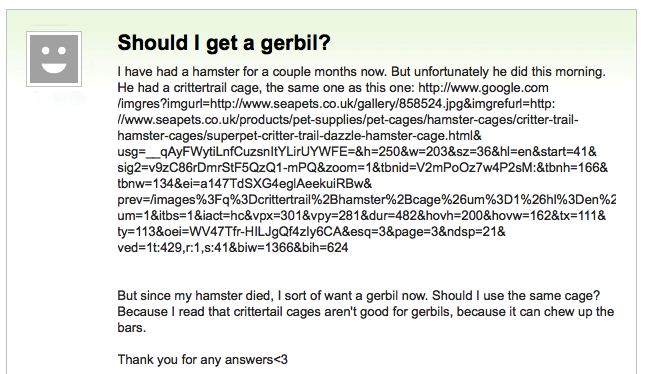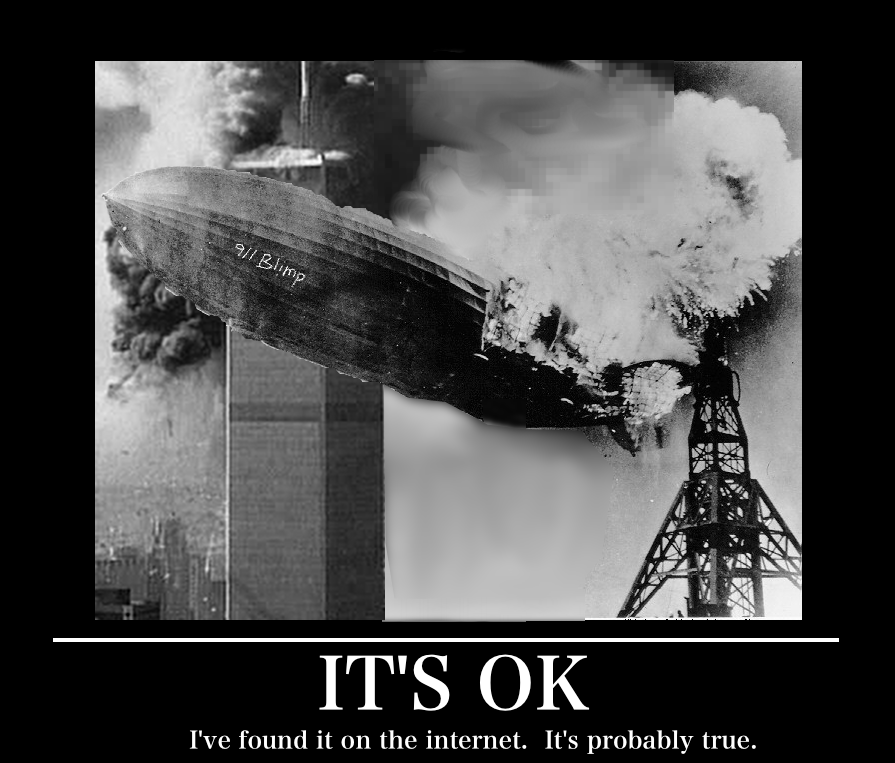Everyone is(can be) a Scientist!
Posted by Aledrinker on February 6, 2011
I have unintentionally stumbled across a treasure-trove of pent-up anger and frustration regarding how scientists of all levels of education have unpliable minds. In fact, scientists are generally not able to see “the truth” because of all the formal logic and brainwashing that the government subjects them to while their minds are still able to be molded.
After all, would even a scientist be able to recognize the misuse of advanced tactical nuclear weaponry in an urban setting if:
- he had never seen them before,
- she were given some other explanation, or
- everyone believed to know more about this topic had said nothing?”
Nope. Probably not. Scientists are notoriously bad at describing the world around them, especially when nobody else has done so before. Scientists are probably the worst people to ask about anything, since “science” means “truth through democracy.” I suspect that they simply believe that any explanation is true, given that it came first.
—
One thing that immediately strikes me about people is that they do not like to make decisions of their own volition. It is always a good idea to seek the advice of somebody who knows more than you do about a problem if you know that you cannot make a well-informed decision on your own.
This is especially important for decisions that may have a large impact on your future.
Compare these questions:
When should I think about retiring? What location has the best public school systems? What is this knee injury I’ve developed?  Is the air resistance of a cat always relevant in a discussion about falling objects? What the hell is “steel resistance?â€
… with these questions:
Should I go out tonight? Is chocolate better than vanilla? When do you think is the best time of day to go running? Should I buy a gerbil?
One class of questions is comprised of those that somebody with a working knowledge of their field could answer. Go talk to a retirement planner if you have important questions about retirement. Talk to a scientist for an explanation of what makes a cat different from steel. These questions have objective answers.
The others do not.

It's not hard to find examples of people who want other people to make decisions for them. This was the first question in the "new questions" section on Yahoo Answers.
Ok. Ok. I blundered. There is an objective answer to this question.
NO.
Online forums are filled with people who don’t want to bother questioning knowledgeable people and would rather turn to the wisdom of the Internet. Many people who ask questions online simply ignore what they already know to be true. They decide to listen to only the answers that confirm what they wanted to hear.
Here, we have some unfortunate person who has decided that it is time to replace his hamster because it did. What can he do to make sure that his new gerbil won’t just off and do as well?

This sums up both my knowledge of these creatures and how easy it was to understand the question on the first readthrough.
Assuming that the current pet was treated well, with proper feeding and watering, not using it as a cat toy, and not leaving it in a freezer or fish tank, this person had the foresight to think that the cage may be an issue for a future pet. So, following that horrendous link for the Super Happy Razzle Dazzle Awesome Sparkles Rainbow Rodent Canyon, this person claims to have even figured out that the cage is not meant for gerbils because they can chew through it.
So that’s it. This person clearly did a portion of the research on what it takes to keep a gerbil, and discovered that the current setup is insufficient. However, the answer to his question was not the one that he was seeking.
What do you do if you don’t like the answer that you’ve found?
You go ask the internet.
The internet, in its infinite wisdom, will never troll you. Nor will it ever tell you a false answer and vehemently defend it as though it were true. There’s no need to check your sources when you use the internet. Add in the extra perk of being able to find whatever you want, and you’re firmly planted on the fast-track to self-satisfaction.
Even when one holds all of the relevant information to make an informed decision on a “trivial†issue, he decides to ask the opinions of others who have dubious credibility. Often times he simply selects the answer that meshes well with what he wanted to hear in the first place.
Oddly enough, in contrast with people faltering on making decisions of preference, they refuse to ask experts the objective questions. People shy away from hearing expert opinions in favor of a minority opinion, usually voiced by those who do not actually know what they’re talking about. What happens when you forgo expert opinions because you think that everyone has a hidden agenda? You start to believe that:
- global warming doesn’t exist, because some 5% of scientists said that at one point,
- the LHC is going to destroy the world,
- the government is hiding information on extraterrestrials,
- we should publicly vote on every NSF grant awarded,
- the Democrats want to set up death-panels,
- evolution is only a theory because my granddaddy ain’t no monkey,
- 9/11 was an inside job, and the physicists know it,
- Bill Gates wants to kill people through vaccination. YouTube even says so.
The underdog isn’t always right.
So remember,

Fusion bombs in the tower base would have pushed mass upward, slowing its fall. Since the fall was "too fast", I propose that this image is sufficient evidence of what may have happened.
Anyway, you shouldn’t get a gerbil until you get a new cage.   That’s one fine cage though. Perhaps you want another hamster?
—
See this link for a quick and (sadly) humorous blog snippet about a study that shows that kids find it hard to judge the credibility of information that they find online. I can imagine that this study does not only apply to children, given how adults seem to also ignore key facts and fervently defend opinions that have been proven to be wrong.

Leave a Comment